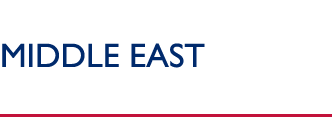 |
|
 |
 |
 |
| USAID Information:
External Links:
|
|
 |
 |
|
 |
 |
|
Iraq
SNAPSHOT
Date of independence: 1932
Population: 27.5 million (2007)
Income per person: $2,900 (2006 est.)
Source: CIA World Factbook
USAID Committment to Iraq (pdf, 10MB)
USAID IN IRAQ
www.usaid.gov/iraq
CONTACTS
Mission Director
Christopher Crowley
USAID/Iraq
APO AE 09316
Tel: 202-216-6289
Director, Office of Iraq Reconstruction (Washington)
Thomas Staal
Tel: 202-712-0448
Email: tstaal@usaid.gov
Iraqi workers remove silt and debris from an irrigation canal in Kirkuk as part of USAID's Community Stabilization Program (CSP). CSP provides employment-generation activities for Iraqis in areas vulnerable to insurgency and violence. In addition to creating jobs, canal clearing projects support Iraq’s vital agriculture industry, which is second only to petroleum in driving Iraq’s economy. (Photo: International Relief and Development) Overview
The rebuilding of Iraq is the largest reconstruction effort undertaken by the U.S. government since the Marshall Plan. Since 2003, USAID has been key to this effort, working in Iraq to encourage economic growth; support democracy and build the capacity of national and local government; bring agricultural products to market; and provide humanitarian assistance to displaced and vulnerable populations. USAID also has helped to rehabilitate Iraq’s critical infrastructure and health and education systems. Many of its activities are implemented by USAID partners working together with provincial reconstruction teams (PRTs) throughout the country.
Programs
Governing Justly and Democratically
USAID programs facilitate democratic transformation and strengthen governance in Iraq. USAID continues to build the capacity of provincial and local authorities to provide essential services, plan development strategies and projects, and work together to govern effectively.
At the national level, USAID works with 10 central ministries and other key administrative offices to bolster the professional aptitude of mid- and senior-level civil servants. Anti-corruption measures are incorporated in program components at both ministerial and local levels. USAID also supported the constitutional referendum in October 2005 and national elections in January and December 2005, through strengthening the Independent High Electoral Commission and coordinating with the United Nations Assistance Mission to Iraq (UNAMI) in support of electoral activities.
Economic Growth: Economic Opportunity
On the economic front, USAID has worked with the U.S. Treasury Department and other agencies to assist the Central Bank of Iraq and Iraq’s Ministry of Finance with critical financial and banking reforms required by the International Monetary Fund. USAID also is assisting the Government of Iraq with its application for membership in the World Trade Organization.
To encourage private sector development, USAID supports nine microfinance institutions, which have collectively offered more than $150 million in micro-loans in all of the country’s 18 provinces, as well as six small business development centers that provide technical assistance to Iraqi entrepreneurs.
Peace and Security: Stabilizing Vulnerable Communities
In areas prone to high levels of insurgency and violence, USAID works with community groups, local government officials, and PRTs to provide stability through activities centering on conflict mitigation and employment generation, such as public works projects, vocational training, and apprenticeships. Micro-grants and business training also are available to encourage small business development.
To engage marginalized and vulnerable youth, USAID supports recreational clubs, sports tournaments, drama presentations, and other activities for young Iraqis.
Investing in People: Rehabilitating Infrastructure
From 2003 through 2006, USAID’s infrastructure program added 1,292 megawatts of new or rehabilitated electrical generation capacity to the national grid. USAID partners refurbished or expanded 19 water treatment plants in five cities, supplying potable water to over 3.1 million Iraqis, and provided sewage treatment benefiting 5.1 million people. USAID also trained plant engineers and managers to ensure the sustainability of water and wastewater treatment plants nationwide.
In addition, USAID’s rural water program installed 70 small water treatment systems in rural communities, supplying clean water to 400,000 villagers each day. USAID has transferred infrastructure assets that were installed or rehabilitated to the Government of Iraq and provided guidance for operations and maintenance.
Investing in People: Health and Education
USAID has helped to strengthen essential primary health care services throughout Iraq. In 2005 alone, USAID-supported emergency campaigns that immunized 98 percent of Iraqi children between the ages of one and five (3.6 million) against measles, mumps, and rubella. Also in 2005, USAID immunized 97 percent of Iraqi children under five (4.5 million) against polio. This program was completed in the summer of 2006.
USAID worked with the Ministries of Education and Higher Education to improve access to quality education in Iraq at the primary, secondary, and university levels. In support of this mission, USAID has rehabilitated thousands of schools since 2003. At the same time, USAID and UNESCO provided millions of new textbooks. USAID completed all of its education programs in Iraq by the winter of 2006.
Back to Top ^
|


